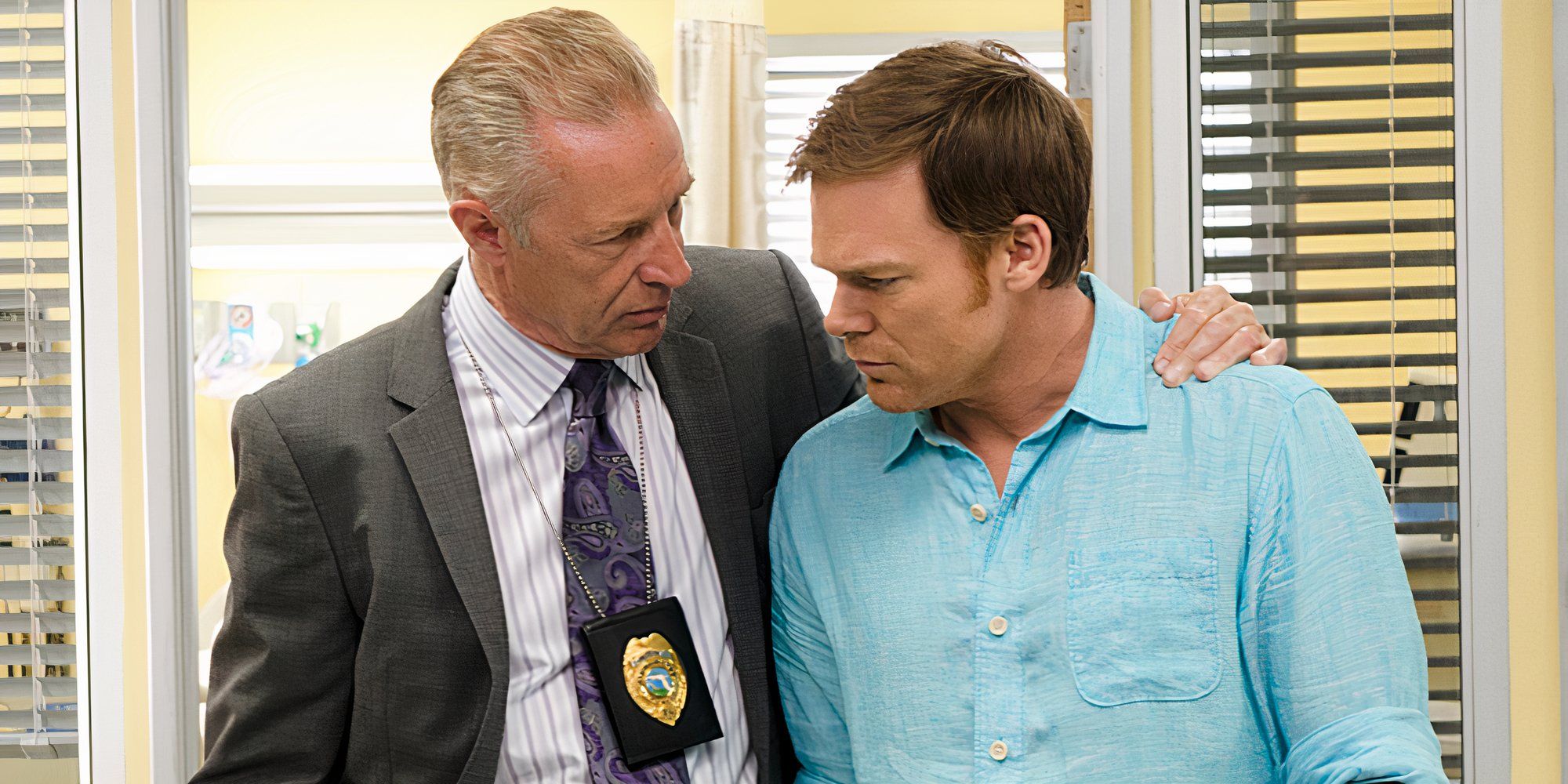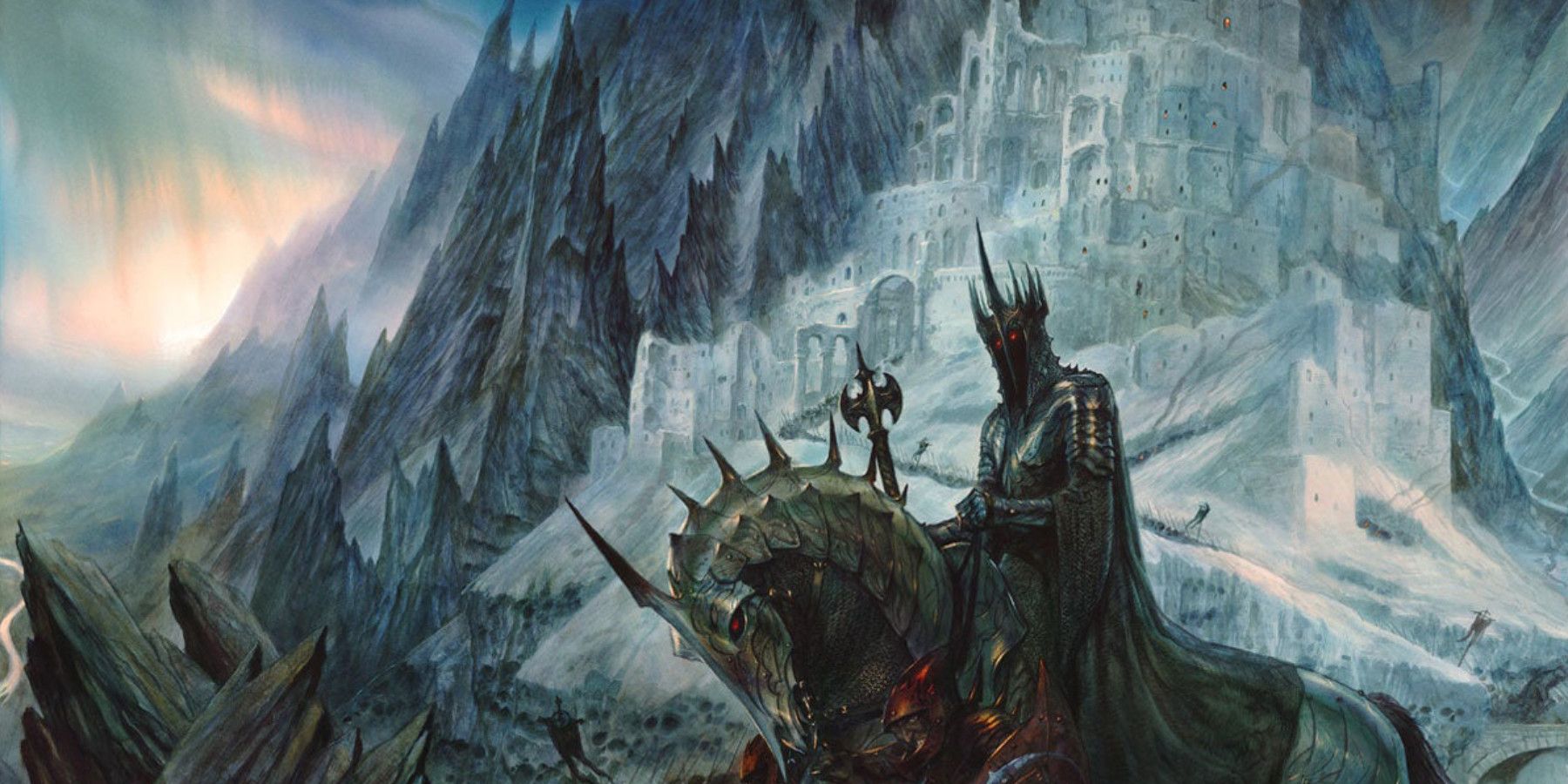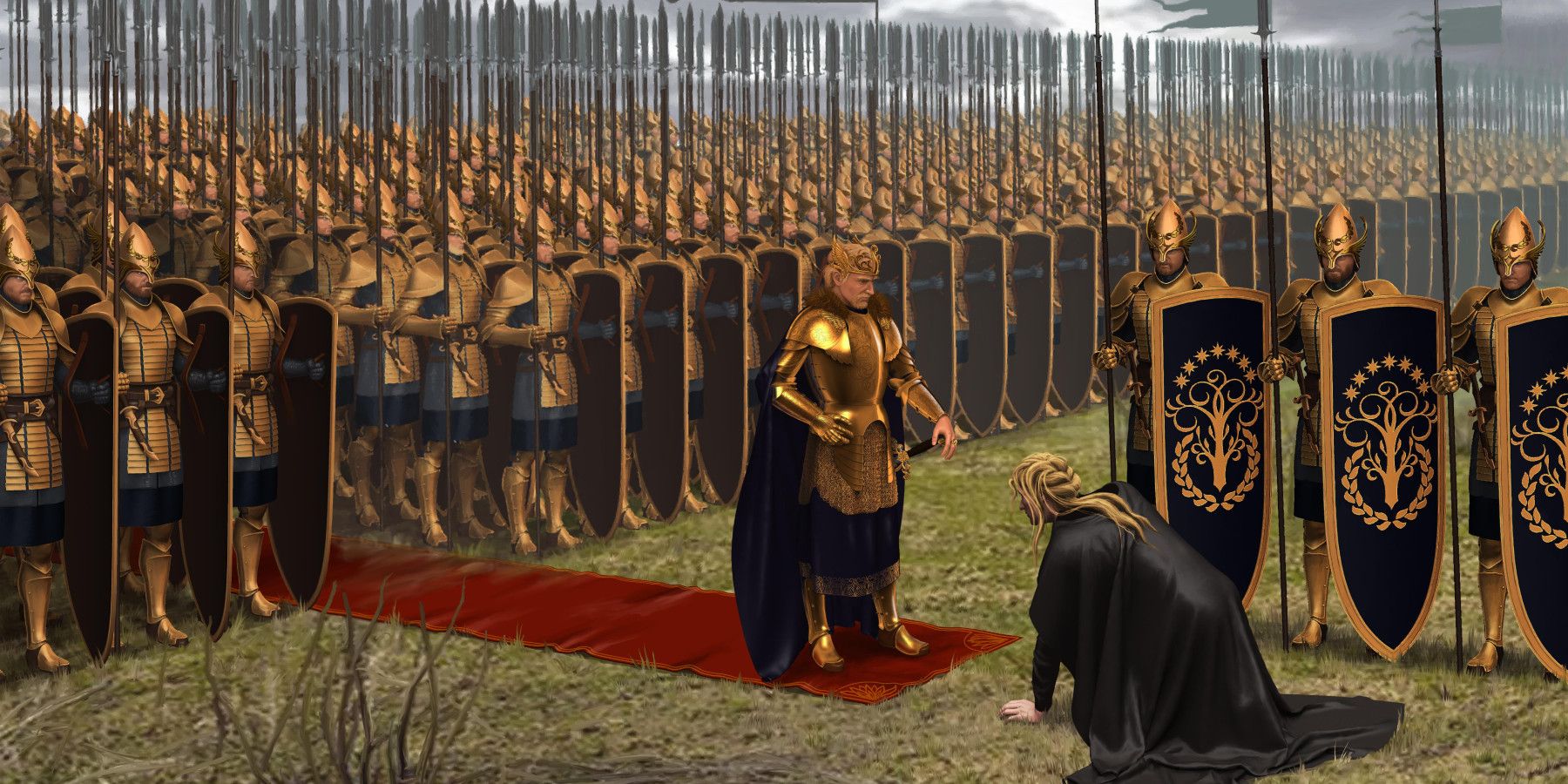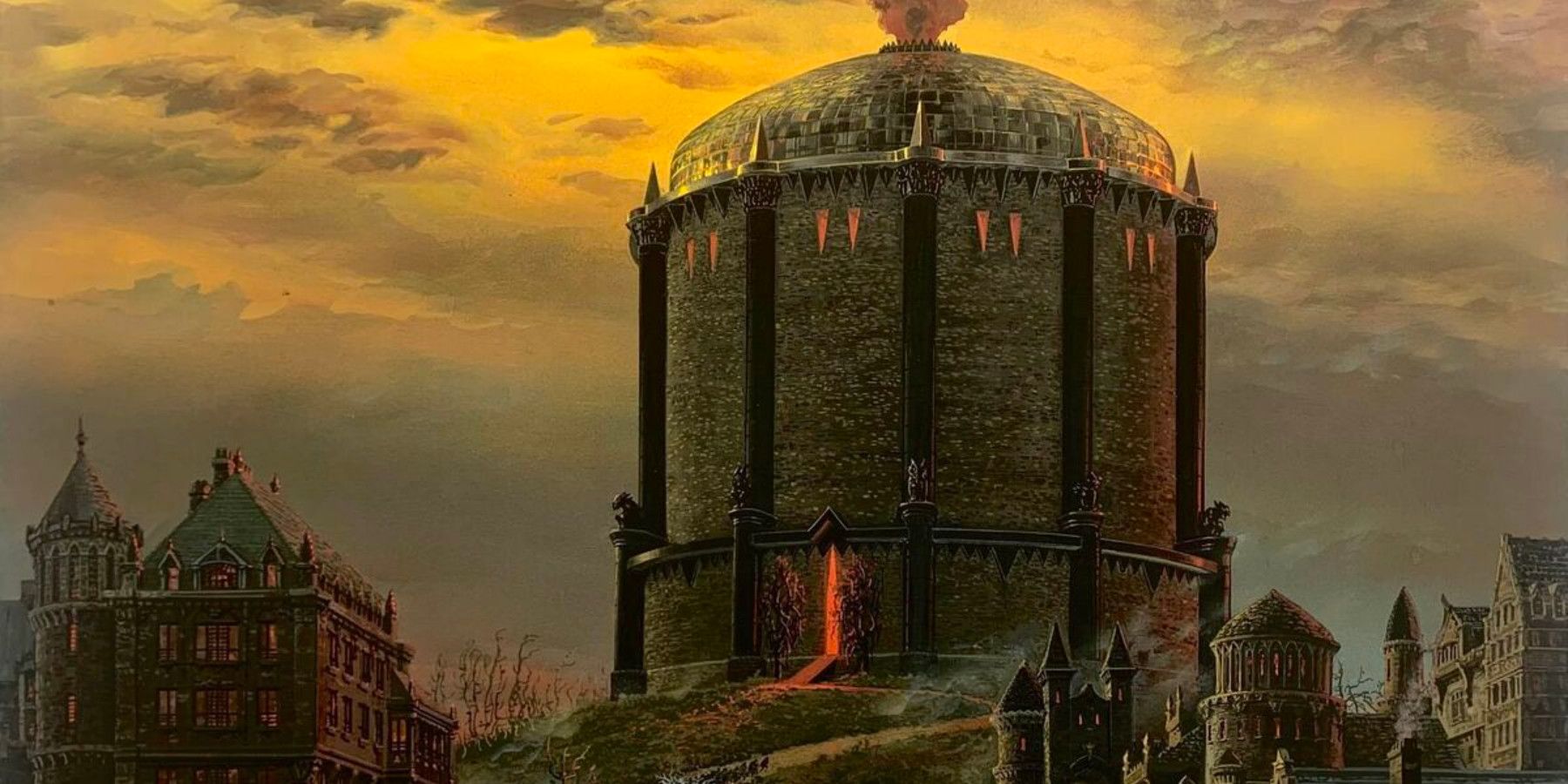Thousands of years before the events of The Lord of the Rings, the island of Númenor was among the greatest kingdoms Middle-Earth had ever seen. Unfortunately, Númenor's ruin was brought about by the insidious corruption of Sauron, who manipulated his imprisonment on the island into a position of power. Fans of Tolkien's works have often wondered, however, what happened to the One Ring while Sauron was in Númenor?
Prior to his time in Númenor, Sauron's One Ring had been used as his most deadly weapon of subjugation against the Free Peoples of Middle-Earth. However, when Sauron was eventually captured by the forces of Númenor, the Ring is noticeably absent from Tolkien's account of the events, leaving many questions as to how, if at all, Sauron utilized his deadliest weapon while in the captivity of the Men of the West.
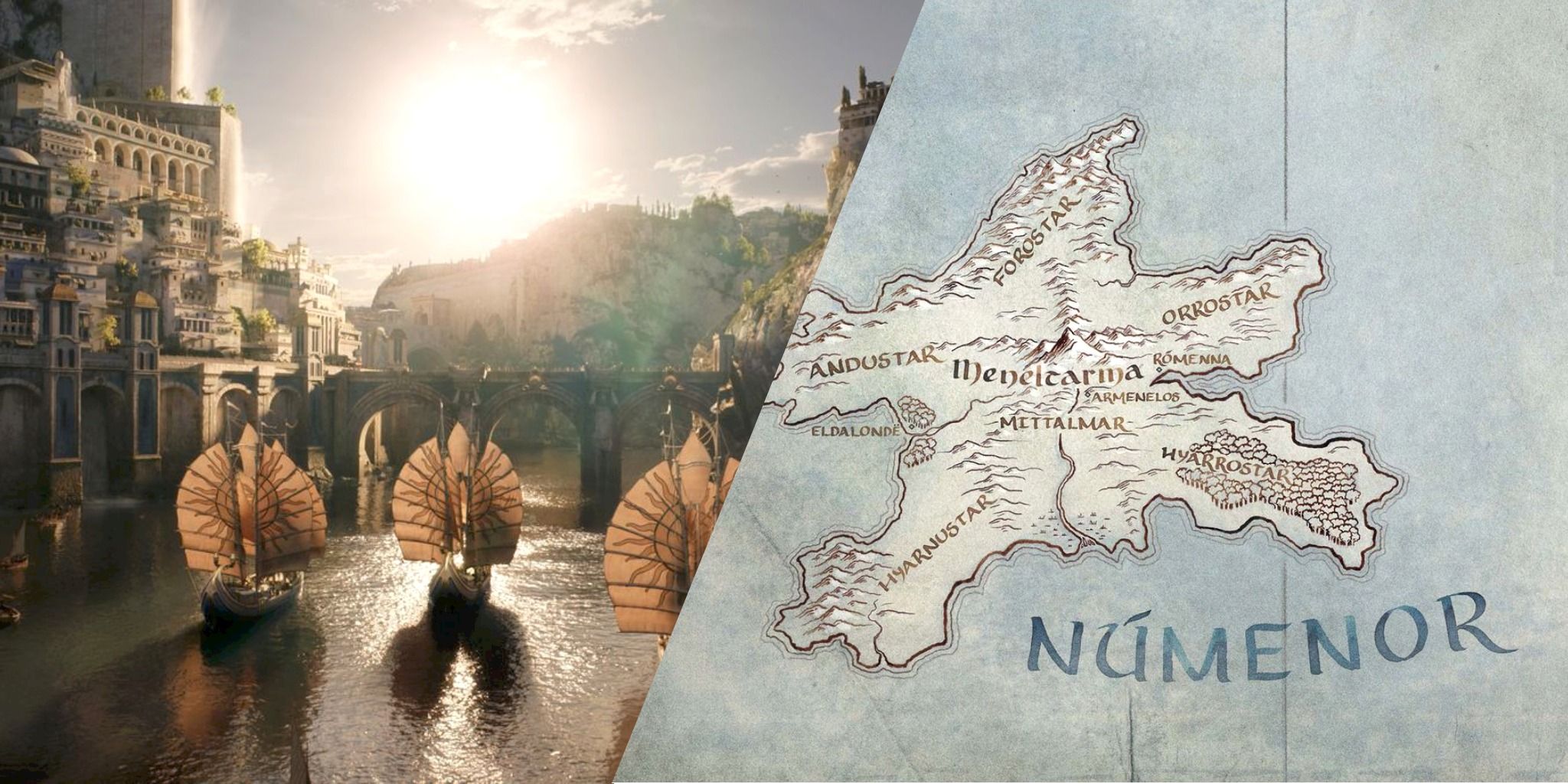
Lord Of The Rings: 4 Things You Need To Know About Numenor
In the Second Age, Numenor was the greatest kingdom of Man in Middle-earth. Here's everything you need to know about this powerful maritime kingdom.
How Sauron Came to Númenor
In the early years of the Second Age, the Dark Lord Sauron forged the One Ring of Power and began to wage a brutal war against the Elves of Middle-Earth. His forces sacked the Elven kingdom of Eregion, but on the brink of complete and utter destruction, the Elves were suddenly assisted by the arrival of the Númenorean army. Sauron retreated to Mordor, now harboring a deep-seated hatred and begrudging respect for the Men of the West, and began to adopt far more insidious tactics to enslave the Free Peoples of Middle-Earth.
During this same time, Númenor underwent a series of cultural upheavals that drastically changed the fate of the kingdom. While Númenor had at one time been fiercely loyal to the Valar, who granted them such a blessed existence, they had begun to forsake their gods and crave immortality for themselves. The population gradually split into two factions: the Faithful, who upheld the ways of the Valar, and the King's Men, who embraced a blasphemous spirit of domination and warmongering. This civil war came to a head with the crowning of Ar-Pharazôn, the 25th King of Númenor, who seized the throne by force and instated a brutal rule that strove to stamp out the Faithful and their ideals.
1,500 years after he'd retreated from the forces of Númenor, Sauron's power had once again grown, so much so that he began to attack Númenorean settlements and calling himself the "King of Men." In S.A. 3261, Ar-Pharazôn sailed to Middle-Earth with a massive host of soldiers to challenge the Dark Lord. Upon seeing the vast armies of Númenor, Sauron surrendered, and he was brought back to Númenor a prisoner. Ar-Pharazôn viewed his capture with immense pride, as he had accomplished something even the greatest kingdoms of Elves had been unable to do. Unbeknownst to him, however, Sauron's scheme for the destruction Númenor had only just begun.
Sauron's Corruption
From the instant he arrived on the shores of Númenor, Sauron set to work destroying the kingdom. Using his powers of deception and persuasion, he adopted a fair form and began to gain the favor of Ar-Pharazôn. Just a few months after his capture, Sauron was made the King's Chief Advisor, a position he used to promote the worship of Melkor among the people of Númenor.
Sauron spread nefarious lies about the nature of Melkor, promising that worshipping him would grant the Númenoreans the immortality they so desperately craved. He told Ar-Pharazôn that the Valar were tricksters, who represented a false god and sought only to enslave the mortal beings of the world. With Sauron's evil influence, Númenor fell even deeper into darkness, constructing a 500-foot temple to Melkor and engaging in foul practices such as human sacrifice.
As time passed, Ar-Pharazôn's life began to wane, and in a final fit of desperation he elected to do the unthinkable: he and his armies would sail to Valinor, the home of the Valar which they were forbidden to enter, and claim immortality for themselves. In S.A. 3319, the armada of Númenor set sail for Valinor, leaving Sauron behind. As the army approached, however, Illúvatar himself intervened, creating a massive chasm that swallowed not only the masses of Númenor, but the island as well. In one fell swoop, the greatest kingdom of Men was destroyed, an event so cataclysmic that it literally curved the shape of the world. Sauron fell alongside the island, losing his mortal form, but spirit returned to Mordor and continued to gather strength for another attack.
Where Was the One Ring?
In the various different accounts of Númenor's collapse throughout Tolkien's mythology, one thing remains surprisingly shrouded in mystery: where was the One Ring? Did Sauron carry it while in Númenor, and if so, how did it end up back in Mordor with him when the island was destroyed? To some extent, the Ring's apparent disappearance can be seen as something of a plot hole, a slight oversight that resulted from Tolkien's blending of multiple stories and ideas into one comprehensive lore.
The most compelling piece of evidence, however, comes in one of Tolkien's many letters. These letters famously contained details and critical explanations of the minutiae of his world-building, and a brief explanation of whether the One Ring appeared in Númenor can be found in Letter #211:
"Sauron's personal 'surrender' was voluntary and cunning: he got free transport to Númenor! He naturally had the One Ring, and so very soon dominated the minds and wills of most of the Númenoreans. (I do not think Ar-Pharazôn knew anything about the One Ring)... Though reduced to 'a spirit of hatred borne on a dark wind,' I do not think one need boggle at this spirit carrying off the One Ring..." - J.R.R. Tolkien, Letter #211
Because of this letter, it is quite clear that not only did Sauron carry the Ring while he was in Númenor, it was actually the Ring's power that allowed him to so quickly corrupt the kingdom. While the letter doesn't reveal how exactly he was able to transport the One Ring, it seems as if the spirit of Sauron carried his weapon home, and this is how it was able to survive and wreak havoc in the era of The Lord of the Rings.
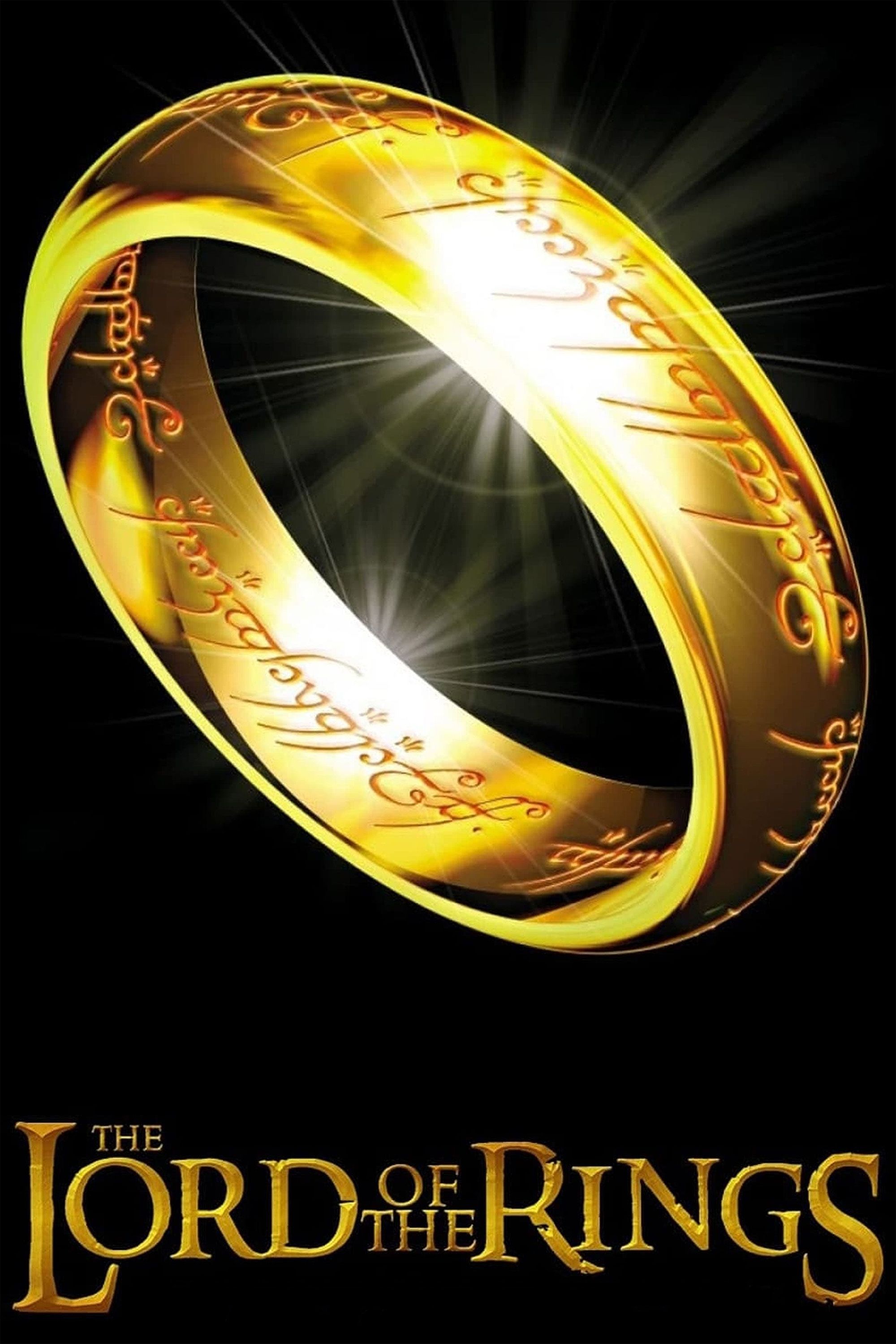
The Lord of the Rings
The Lord of the Rings is one of the most iconic names in entertainment. The franchise started with novels from J. R. R. Tolkien before being adapted onto the big screen by Peter Jackson in one of the most critically-acclaimed film trilogies of all time. There have also been numerous The Lord of the Rings video games of varying quality.


